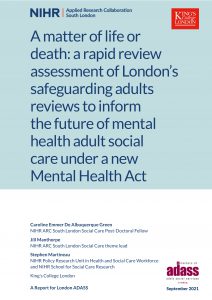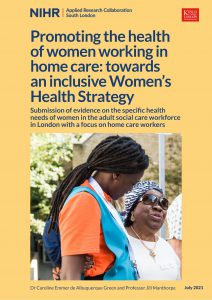Stephen Martineau is Research Fellow at the NIHR Policy Research Unit in Health and Social Care Workforce, King’s College London. (1,115 words)
 At the British Academy earlier this month, Dr Camillia Kong (Birkbeck College) and colleagues presented their end-of-project findings on the place of values and participation in mental capacity law. As well as contributions from the research team, the day featured a group of international experts, three Speak Out Leaders from VoiceAbility, and it culminated in a panel made up of four senior former judges: Baroness Hale of Richmond, Sir Mark Hedley, Senior Judge Denzil Lush, and District Judge Margaret Glentworth.
At the British Academy earlier this month, Dr Camillia Kong (Birkbeck College) and colleagues presented their end-of-project findings on the place of values and participation in mental capacity law. As well as contributions from the research team, the day featured a group of international experts, three Speak Out Leaders from VoiceAbility, and it culminated in a panel made up of four senior former judges: Baroness Hale of Richmond, Sir Mark Hedley, Senior Judge Denzil Lush, and District Judge Margaret Glentworth.
Participation and values
The event coincided with the launch of the second of two films produced by the project. The first, from 2021, had addressed the importance of good communication with the person at the centre of Court of Protection proceedings and discussed some of the ways of enabling their involvement (see particularly the ‘role-play’ at about 22 mins in). Three contributors in the film, Speak Out Leaders from VoiceAbility, took part in a panel at the event. The new film, Making Values Matter in the Court of Protection, includes a remarkable ‘demonstration’ of the exploration of a person’s values by a barrister engaging with the person and their father (from about 9 mins in). By modelling one way that requirements in the best interests checklist in s.4 Mental Capacity Act 2005 can be met, it provides a corrective to any notion that a finding of incapacity in respect of a decision amounts to an ‘off-switch’ for a person’s rights and freedoms.* Continue reading









